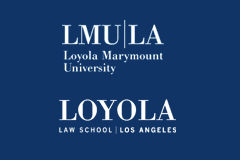Urban agriculture/community gardening in the Bronx has multiple roles, including health-promoting, economic, environmental, and cultural. These roles are particularly important in light of urban sustainability issues and environmental justice concerns, such as differential access to open space, recreation, and fresh produce in poorer communities and communities of color, as well as differential environmental and health impacts of unsustainable practices on these communities. The gardens generally help promote a sense of place - a focus for communities - which often have little access to safe parks or recreational space within their neighborhoods, and create a center for community cultural and educational activities. The Bronx currently has about 175 community gardens administered by Operation Green Thumb, as well as a number of community gardens operated by non-profit entities, such as the Parks Council, and community gardens on private property. On average, the Bronx community gardens use about 75% of their land for growing vegetables, and many gardens supply the farming families and others in the neighborhood with much of their vegetables for the year. This study investigates urban agricultural practices in the Bronx to assess how community gardens improve quality-of-life for the proximate populations. Through semi-structured interviews of the gardeners, visits to observe the gardens, and a spatial analysis of community socio-demographic characteristics using Geographic Information System (GIS), we examine the social, political, cultural, environmental, food security, and health benefits of community gardening. This is part of a larger study comparing urban agricultural practices in the Bronx and Curitiba, Brazil.
Recommended Citation
Ottmann, Michelle MA; Maantay, Juliana A.; Grady, Kristen; Cardoso, Nerio A.; and Fonte, Nilce N.
(2010)
"Community Gardens: An Exploration of Urban Agriculture in the Bronx, New York City,"
Cities and the Environment (CATE):
Vol. 3:
Iss.
1, Article 20.
DOI: 10.15365/1932-7048.1049
Available at:
https://digitalcommons.lmu.edu/cate/vol3/iss1/20
DOI
10.15365/1932-7048.1049
